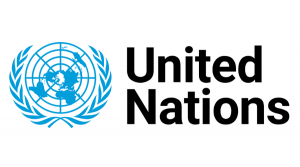
Her land. Her rights.
Droughts are among the greatest threats to sustainable development, especially in developing countries, but increasingly so in developed nations too. In fact, forecasts estimate that by 2050 droughts may affect over three-quarters of the world’s population.
The number and duration of droughts has increased by 29 percent since 2000, as compared to the two previous decades (WMO 2021). When more than 2.3 billion people already face water stress, this is a huge problem.
Women hold a vital stake in the health of the land, yet they often don’t have control over it.
In all parts of the world, women face significant barriers in securing land rights, limiting their ability to thrive and prosper.
In many regions, they remain subject to discriminatory laws and practices that impede their right to inherit and access to services and resources.
And when land becomes degraded and water is scarce, women are often the worst affected.
This year, the theme of the International Day Against Desertification, and Drought “Her land. Her rights”, emphasizes that investing in women’s equal access to land and associated assets is a direct investment in their future and the future of humanity. It’s time for women and girls to be at the forefront of global land restoration and drought resilience efforts.
Download the logo and other digital materials
Access the campaign and our material to spread the message. You will find the logo of the International Day in several languages, as well as posters, banners, videos and other content to share thanks to the UN Convention to Combat Desertification, organism that leads this UN Observance.
When the soil asks for help
Desertification is the degradation of land in arid, semi-arid and dry sub-humid areas. It is caused primarily by human activities and climatic variations. Desertification does not refer to the expansion of existing deserts. It occurs because dryland ecosystems, which cover over one third of the world’s land area, are extremely vulnerable to overexploitation and inappropriate land use. Poverty, political instability, deforestation, overgrazing and bad irrigation practices can all undermine the productivity of the land.
The World Day to Combat Desertification and Drought is observed every year to promote public awareness of international efforts to combat desertification. The day is a unique moment to remind everyone that land degradation neutrality is achievable through problem-solving, strong community involvement and co-operation at all levels.
The matter requires even more attention now. When the land degrades and stops being productive, natural spaces deteriorate and transform. Thus, greenhouse gas emissions increase and biodiversity decreases. It also means there are fewer wild spaces to buffer zoonoses, such as COVID-19, and protect us from extreme weather events, such as droughts, floods, and sand and dust storms.
The UNCCD is therefore calling on all members of the global community to treat the land as a limited and precious natural capital, prioritize its health in the pandemic recovery and push hard to restore the land during the UN Decade on Ecosystem Restoration. Everyone has a role to play because everyone has a stake in the future.
Click here to Read More…





